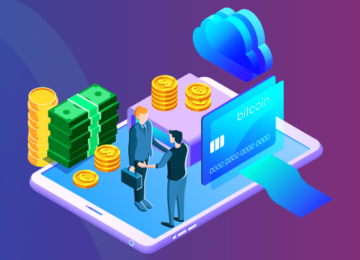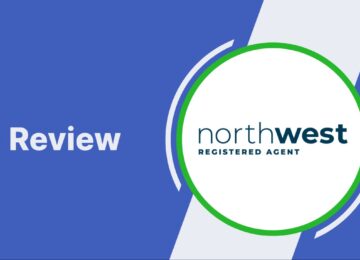Startups have fashioned the business industry since the beginning of the millennia. But, if we look back, how many of them have survived?
As per a recent study, nine out of ten startups fail. If you dig deep for failures, you find bad sales and marketing are two of the significant causes of startup failures. (Source: Failory.com).
The importance of sales can very well be explained by Barabara Coronon, whose book is one of the best books for female entrepreneurs. When she started as a real estate broker, she didn’t care all that much about real estate. “I knew how to sell things” (source: inc)
If your startup is struggling for sales even when you have a ‘killer’ sales strategy in place, think again. The chances are that you might be overselling your idea.
Here’s the bitter pill – A learning you will not get in any online small business courses you might be looking at to upgrade your entrepreneurial skills.
Your startup might have sprouted from a crazy idea and has the potential to cause a significant breakthrough in the market, but if you don’t know how to sell it right, it might crumble sooner than you think.’
However, It doesn’t have to be like that!
You are at the early stage of attracting customers, and your sales strategy can be the make-or-break-it point.
Knowing how to sell your idea objectively without flaunting your knowledge is the key here. If you dream of transforming your startup into a big business someday, overselling is a blunder, you should avoid.
Importance of Sales for Startups
Before we go into overselling, it’s essential to understand the role played by sales as a building block of a startup.
Some startups can be drawn into the illusion that a solid sales strategy isn’t necessary as the product can sell itself. However, the bitter truth is that no matter how great your product is, it’s not going to succeed if you don’t manage to sell it at the end of the day.
According to recent statistics, most small businesses fail as a result of cash flow problems (Source: Blue Corona). The bottom line here is simple. If you are not selling, you are not in business.
Sales indicate two significant factors. First, it generates money and fuels the business to keep it running. Second, sales imply that your business idea solves a problem that customers face (Source: Propeller).
Sales are the benchmark of the success of your business.
Benchmark because it quantifies the worth of your product and its demand. Sales are the means through which you are going to generate revenue. Without sales, a business will struggle to strive in the market as it is an indication that you haven’t managed to match your product with the customer’s needs.
It’s the most crucial stage in the customer journey where the prospect is convinced of a solution’s value. A good sales strategy helps you spread the word about your business and get the customers hooked on your ‘terrific product.’
But, selling isn’t focused only on customers. Think about investors and employees.
A good sales pitch that includes all the crucial details to convince a potential investor is integral to finance your business’s growth. It provides scope for expansion and support product development.
Moreover, you need to sell your idea appealingly to attract top talent to work with you. Generating sales is essential to retain them in your startup firm.
So, selling is inevitably essential. The critical aspect here is the ability to draw the line between selling and overselling so that you don’t risk losing a prospect.
What is Overselling?
Overselling is when you continue your sales pitch without getting the cue that the customer has already decided to purchase.
In layman language, Overselling is when you provide customers with too much detail. We also refer to it as pushy sales. It’s easier for startups to oversell themselves in their sales strategies in an attempt to lure customers. You want the customers to like the product, so you tell all the nitty-gritty detail about it.
You defeat your potential rivals and promise that it will be the best choice in the market. You elaborate on how great the product is and how it will exceed expectations. Just like this, you have oversold the product before you know it!
So, what’s the worst that could happen? A little bit of flattery can’t hurt anyone. Or can it?
Overselling is dangerous because the trigger can go off somewhere along the line, and the bullet will cut through your chance of landing on a great sale.
The moment you begin to say too much about your idea and make claims and promises that aren’t at par with delivery, the customer’s interest, trust, and confidence start to wither.
What looks like an excellent sales pitch, in your opinion, can be an annoying rant in the mind of the customer. It can distract your customer and overwhelm them with too much information, which in turn can make them rethink their decision and reevaluate the worth of your product.
Here’s when you know that you might be crossing the line overselling your idea.
- You give too much information about the product or service than what is necessary.
- You repeat the same detail in multiple ways.
- You talk extensively about how great a product is as opposed to the problem it intends to solve.
- You deliver promises that are too big for you to handle.
- You make claims that aren’t feasible but sound fancy to hear.
- Your sales pitch sounds more like a hyper marketing pitch.
Case Studies of Startups for Whom Overselling Backfired
If you are still not convinced, consider what happened to these startups that practiced overselling.
- Juicero
expectations of the product. The company raised $120 million to finance its product, a juicer that they claimed to have the pressing force of “lifting two Teslas.”
As the product came into the market, customers soon realized the actual functionality didn’t deliver even a fraction of what the startup promised.
The juicer required you to insert premade juice packs with fresh-cut vegetables, and on top of that, people could just squeeze out juice straight from the boxes using their hand! The company oversold itself by promoting a flabbergasting functionality that didn’t exist (Source: The Guardian)
- Theranos
Theranos is a biotech startup that promised to revolutionize the medical industry with blood testing devices that could diagnose ailments with a few blood drops. The claim was that “one tiny drop changes everything,” but the startup never managed to pull out a product as close to what it was trying to sell. It wasn’t feasible, but the company continued to oversell its idea raising millions from investors, only to face terrible defamation at the end (Source: Forbes).
- Rate That Meeting
Rate That Meeting was a startup that introduced an app-driven towards assessing the productivity of meetings by getting participants to rate each Meeting anonymously.
One of its co-founders’ biggest mistakes was that they overly focused on attracting new sales instead of servicing existing customers better. They oversold their software and didn’t focus on feedback to measure the impact of their product (Source: Medium)
How to Avoid Overselling – The Thin Line
You are in the age of a self-educated customer who already performs adequate research before reaching out to salespeople to inquire about the product. (Source: Certain.com) They are well-versed about the background, and any superficial or inaccurate detail is enough to turn them away.
So, to avoid the risk of losing a potential sale and hit all the right tunes at the same time,
- Tone down the hype
As you saw from the cases mentioned above, overselling is often accompanied by under-delivery because all the promises made are just superfluous hype. Startups have no victories to brag about in the beginning, and what’s left at their disposal is the ability to make a promise and get customers’ hopes up. But, it has to be within your capacity.
As the former co-editor of TechCrunch aptly puts it, “don’t let your hype write a check that your product can’t cash” (Source: TechCrunch).
- Understand your customer expectations better
95% of customers select businesses that provide relevant content at every stage in the customer journey. Leave out the pompous talk for the marketing and focus on information that the customer wants to hear.
Ask questions to understand – What are the customer’s exact requirements? Don’t make the customer feel dumb with the assumption you know better.
- Provide the opportunity to decide
Begging for a sale is not going to grant you sustainable revenue. It might work once, twice, and thrice at best. The customer must be given the autonomy of their purchasing decisions while the best you can do is ‘nudge’ with the correct details (Source: Harvard Business Review). Once you are done describing the product, provide some time and space for evaluation and questions.
- Make your sales pitch factual
Keep your sales pitch close to factual details without exaggeration. Please talk about the pain point it resolves for the user. It makes your selling tone more realistic and convincing for the customer.
While it is essential to emphasize your product’s strengths, you should also be ready to talk about its possible drawbacks when questions are raised about them. High sales pitches avoid claims that are too difficult to fulfill (Source: HubSpot)
In an era where you can’t afford to make mistakes, startups must make it a point to steer clear from overselling.
Customer experience is vital for a brand’s success today, and aggressive overselling tactics can damage it to a great extent. Customers prefer trustworthy brands with no-frills and would even be willing to pay extra to portray a strong sense of loyalty (Source: MyCustomer). So, remember to balance out your sales strategy to meet the requirements of the customer.
Jasmeet is a founder of Lessons at Startup – A blog where he shares entrepreneurial stories. He specialises in Digital Marketing and Content Writing. He is addicted to Google News, Netflix, Good Coffee and Quora ☺.












